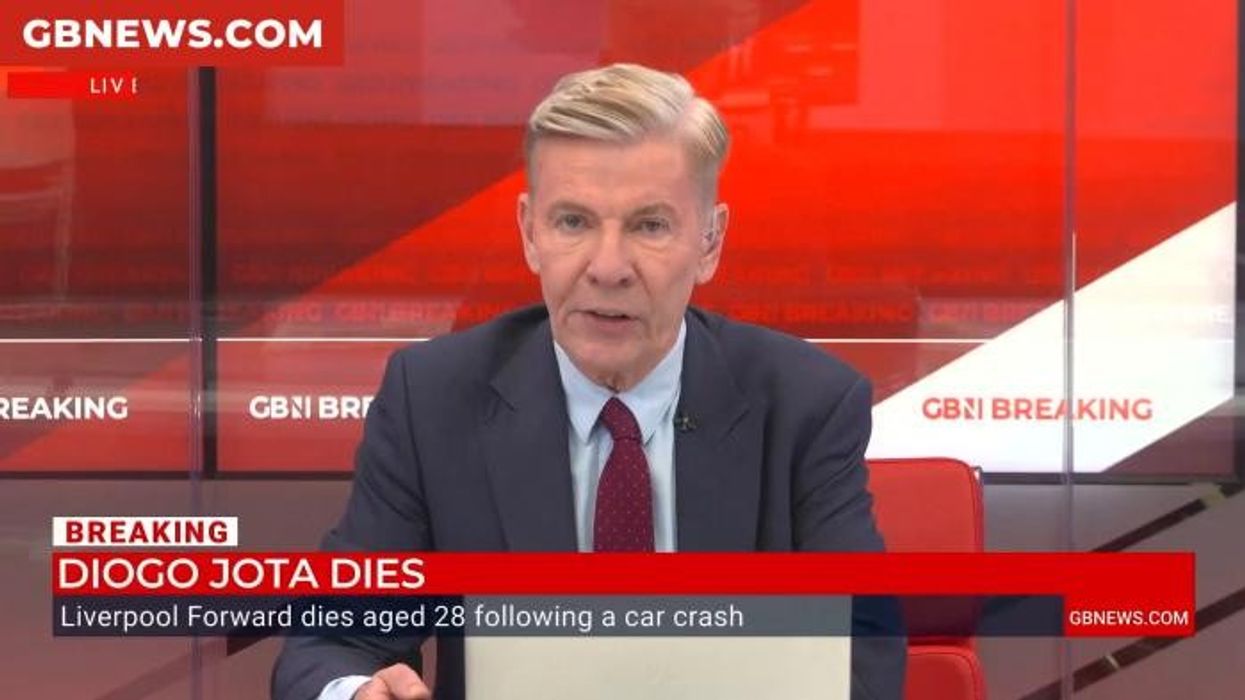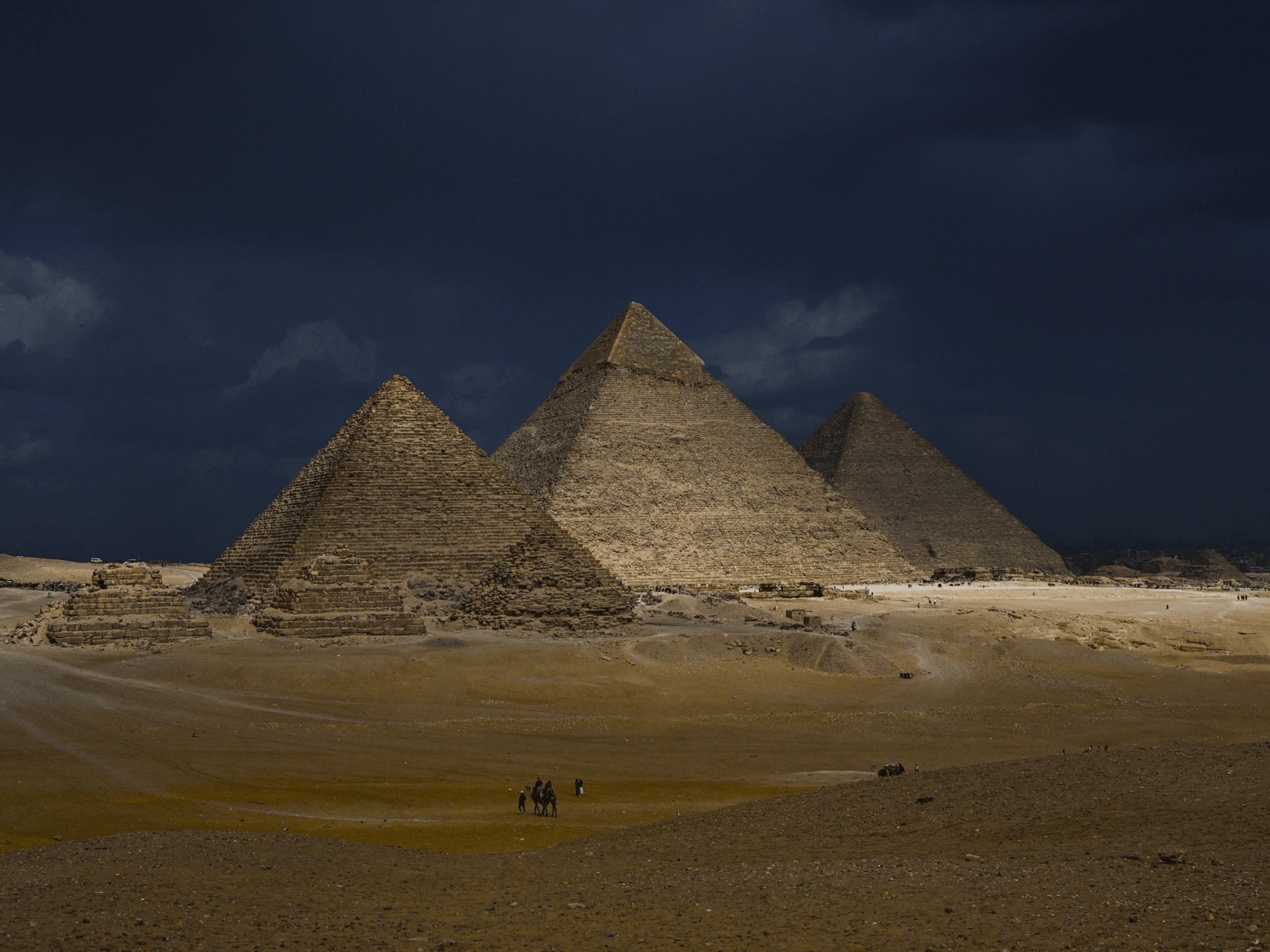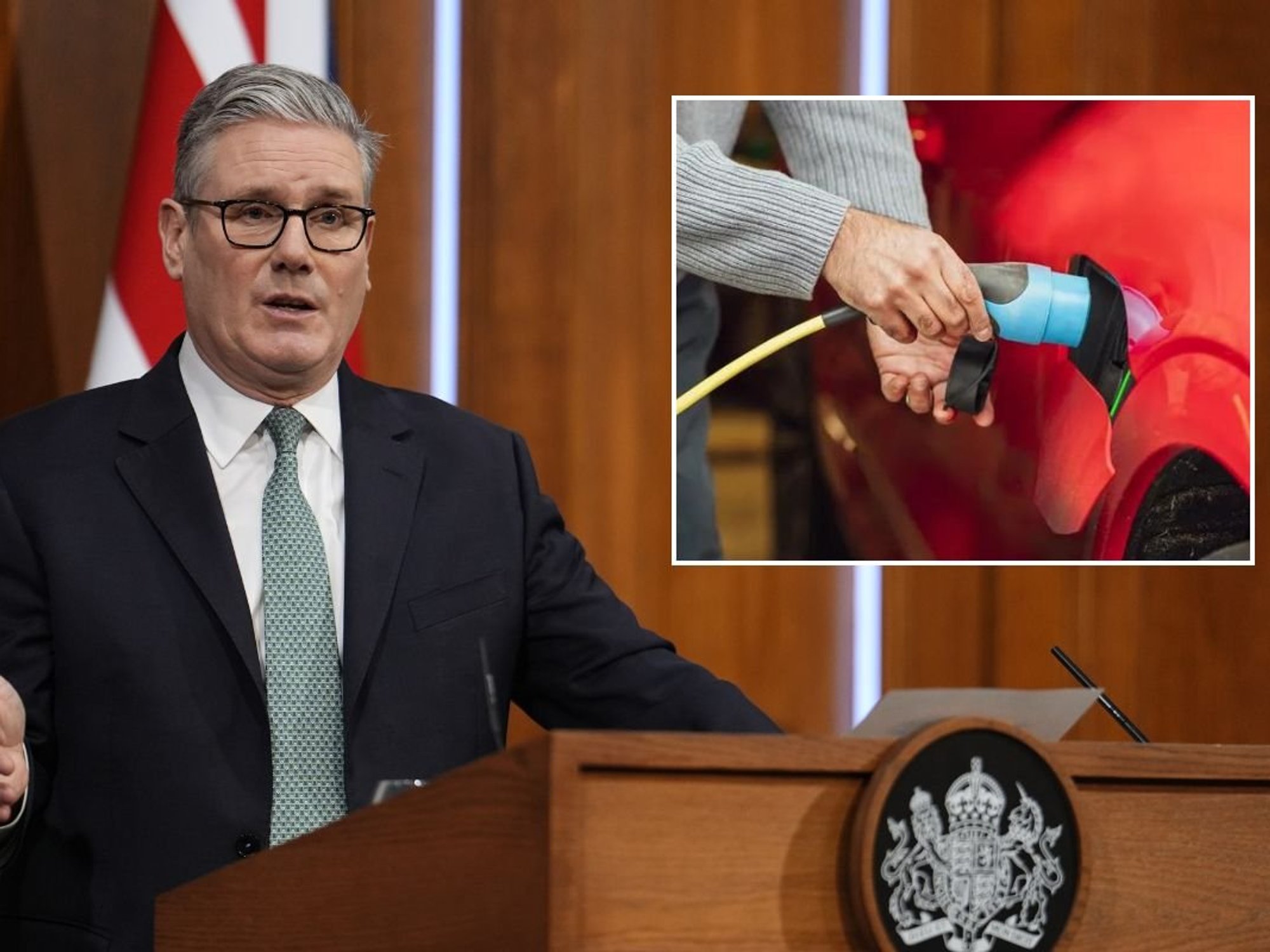Liverpool remain a city in shock a week after Diogo Jota's tragic death
Diogo Jota's tragic death has left the city of Liverpool stunned
Don't Miss
Most Read
It was Bill Shankly who famously once said: “Some people think football is a matter of life and death…I assure you, it's much more serious than that.”
Some have since questioned whether the legendary former Liverpool FC manager actually ever uttered those immortal words at all.
But whatever the truth may be, the last seven days have painfully proved the sentiment behind it is a myth.
A week on from the death of Diogo Jota, and Liverpool remains a city frozen in shock. On Thursday afternoon, under a golden sky, hundreds stood outside Anfield, still trying to make sense of it all.
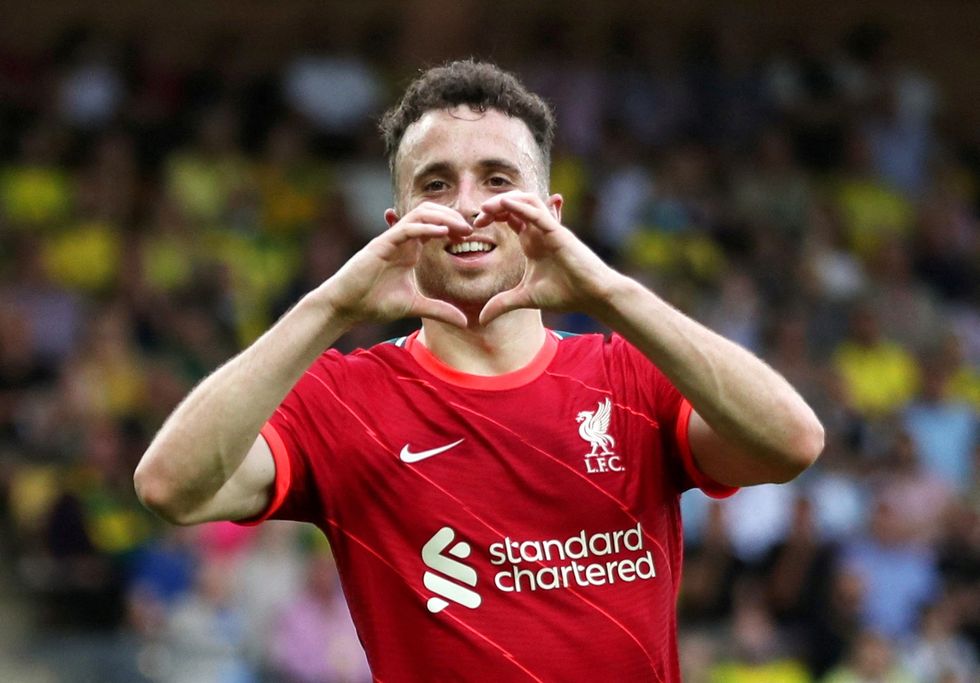
Diogo Jota leaves behind a wife, who he married just weeks ago, and three children
| REUTERSEverywhere you looked, there were people with a bewildered look. No words were being spoken. Silence was only the soundtrack to the scene outside the stadium.
Instead, those who had come were lost in their own thoughts, all paying dignified respect to the 28-year-old father of three who got married to his childhood sweetheart, Rute Cardoso, on June 22.
JUST IN: BBC suffer awkward live Wimbledon TV moment between Martina Navratilova and Clare Balding
Every now and again, someone would step forward to lay flowers or put down a shirt or scarf, adding to the blanket of tributes which has wrapped itself around this famous stadium.
Tens of thousands of floral tributes are there now, and the air is filled with a sweet, fragrant smell.
Amid the sea of red petals, there’s blue. Blue balloons left by Evertonians. Blue shirts left by Manchester City fans. Blue teddy bears left by children who have grown up in a city where you only support Liverpool or Everton.
Football is, by its very nature, a tribal sport. But all rivalries have been cast aside in the days since Jota’s death. The entire football world wants to say goodbye.
Nowhere was this more evident than at a wall close to the entrance to the stadium, which has now become a shrine to the player. Bright white letters say Forever 20 on a black-painted wall, a reference to Jota’s number, which is now expected to be retired by Liverpool ahead of the new season.
As I stood by the wall, I spoke to a Manchester United fan.
Normally arch-rivals, he said he’d wanted to come to pay his own personal tribute to a player he “deeply admired.”
Supporters from West Ham, Brighton, and Crystal Palace, who were on holiday in the North West, were also at the wall leaving tributes and paying their respects.
READ MORE: Nick Kyrgios brands Wimbledon a 's**t show' as tennis star rages at controversy
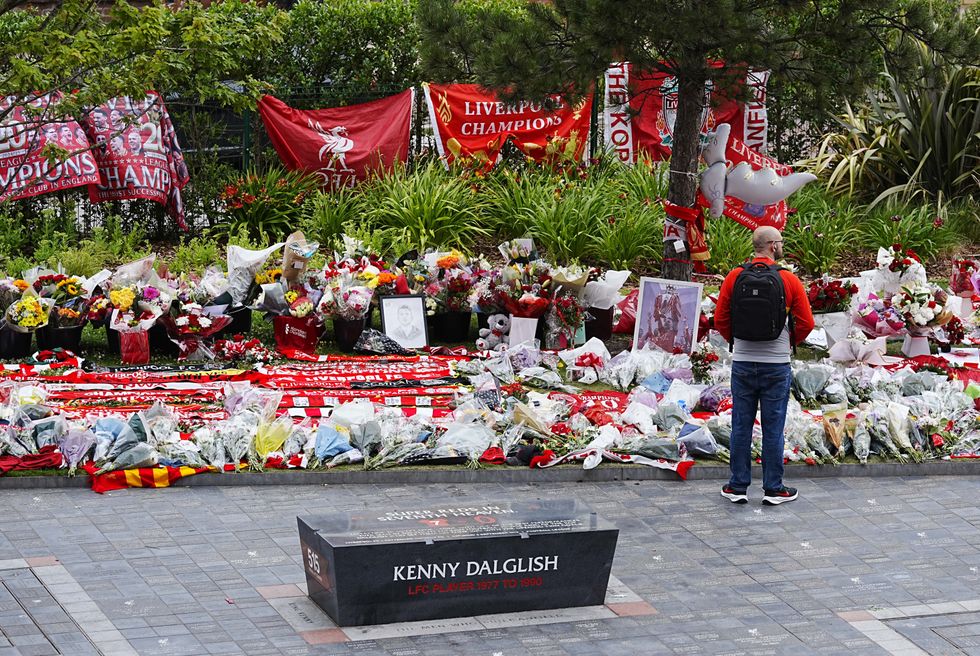 Liverpool fans have been paying tribute to Diogo Jota outside Anfield | PA
Liverpool fans have been paying tribute to Diogo Jota outside Anfield | PAUp the steps near the entrance to Anfield’s Main Stand, a queue of people patiently waited to sign a book of condolence.
As I joined it, I spoke to a father and son who, weeks ago, had cried in each other’s arms as they watched Liverpool win the Premier League against Spurs. Now they were about to write a goodbye message to one of the players who’d made their dreams come true.
“It’s hard to imagine whether things will ever be the same again in there now,” another fan said to me, gesturing towards the stadium as he waited in the queue. His words were echoed by many other supporters I met and spoke to.
The first game of the season in August, usually a moment of hope, expectation, and excitement, is going to be a highly emotional farewell to a player who won the hearts of supporters.
As a Liverpool supporter who attends Anfield every week, it’s always been clear to me why Jota was so adored. It wasn’t just his skill and ability that won the hearts of the supporters.
It was the fact he’d embraced Liverpool as a city and made it his home.
Jota’s humility also made him stand out. He wouldn’t play every week. He’d often be dropped.
But every time he came on, he gave everything and, more often than not, he scored. That’s why supporters adored him and created a song which spoke of him taking us to victory. He did. Over and over again. But now he’s gone.
LATEST SPORTS NEWS:
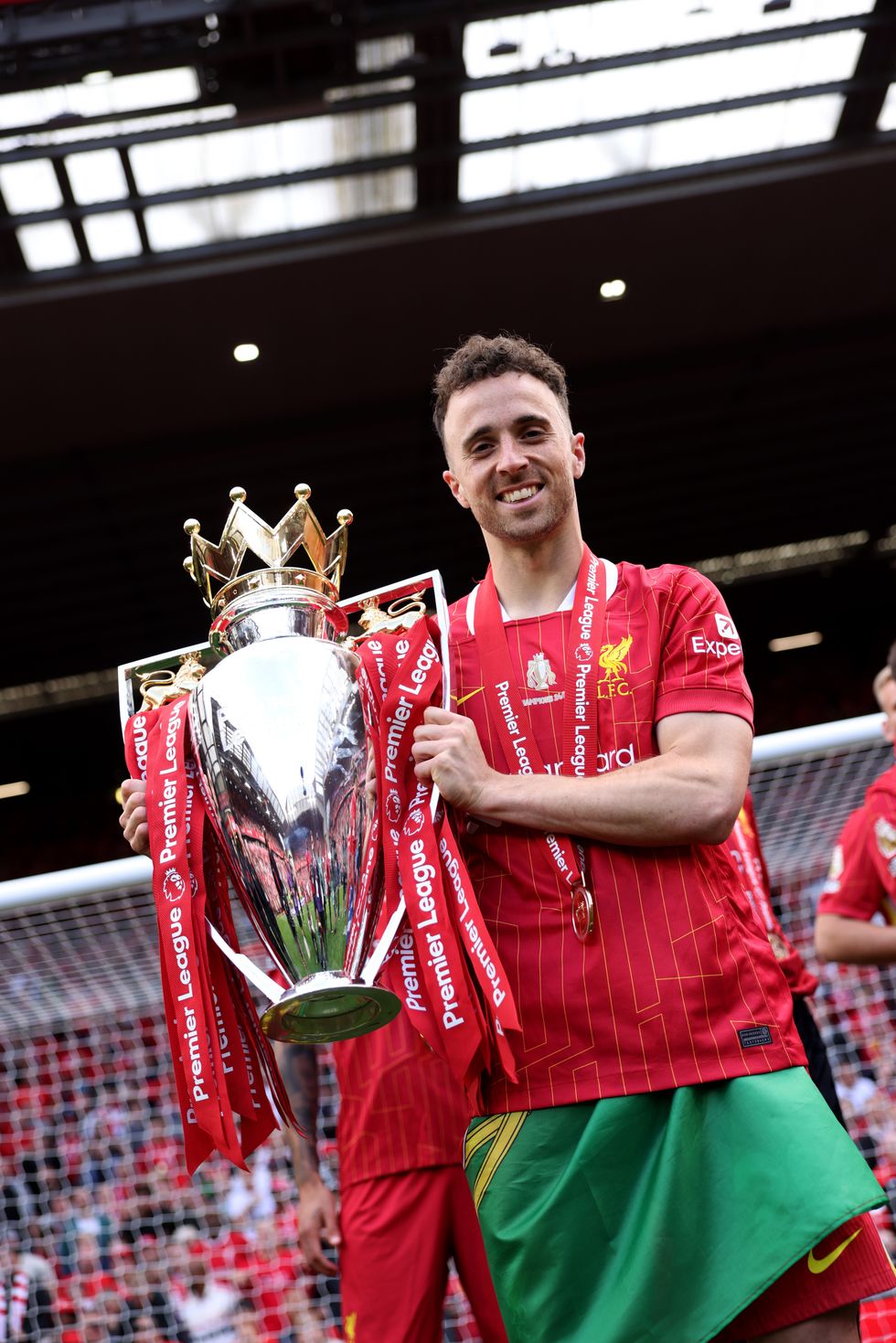 Diogo Jota was a key player for Liverpool during his five years at Anfield | GETTY
Diogo Jota was a key player for Liverpool during his five years at Anfield | GETTYAfter signing the book of condolence, I notice a car pulling up and an elderly supporter being helped out by two nurses.
They gently placed him in a wheelchair and guided him towards the sea of flowers. They were closely monitoring medical equipment attached to the man, who was clearly unwell.
“He’s supported the club all his life,” one of the nurses tells me.
“He wanted to just come here and pay his respects, well…” her voice trailing away.
As I walk away from the stadium, I see a small group of fans gathered by the iconic Bill Shankly statue close to the entrance to The Kop. It has been draped in Diogo Jota shirts. Shankly and Jota are now forever part of Liverpool's rich history.
And history tells us this: football will always be Britain’s beautiful game, but it’ll never be more important than life and death.


